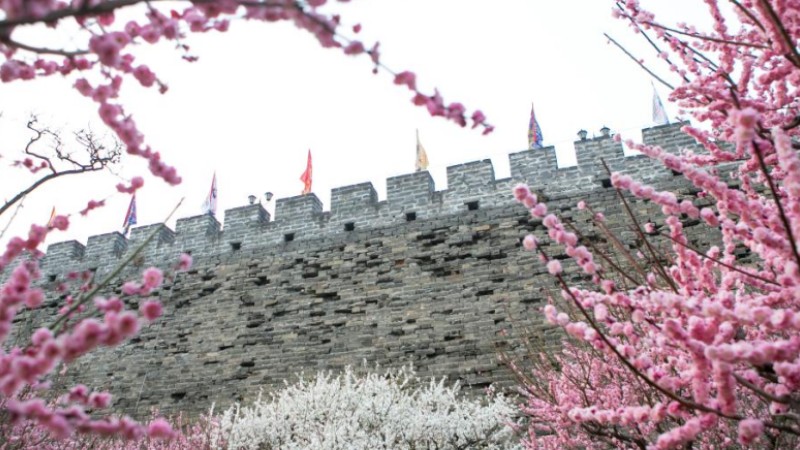Feature: Chinese-financed project improves water supply in Cameroonian city
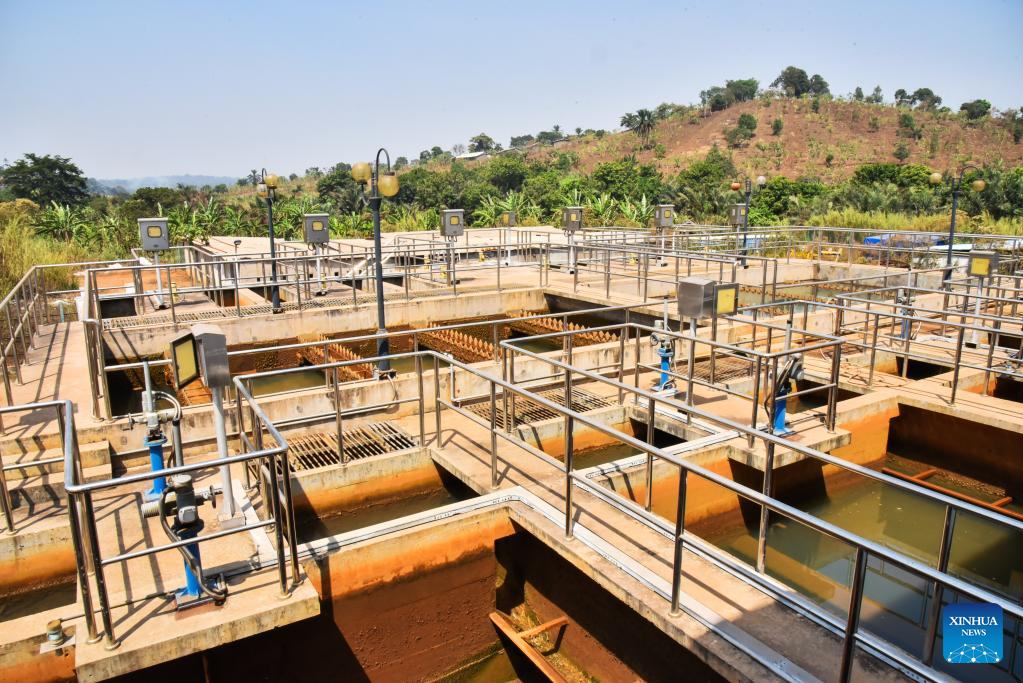
This photo taken on March 2, 2023 shows different steps of water treatment in the water treatment plant in Bafoussam, Cameroon. (Xinhua/Kepseu)
YAOUNDE, March 22 (Xinhua) -- The Banengo neighborhood in Bafoussam, the chief town of Cameroon's West Region, used to be notorious for a water crisis where water quality in the area was poor and supply was irregular.
Such a difficult situation in the neighborhood where Laurence Wandji lives caused her children to wake up as early as 4:00 a.m. to fetch water, sometimes covering a long distance. So bad was the situation that her son, Stones Kaptue, was diagnosed with dysentery. "He almost died," said the mother of five.
Water scarcity was dire not only in Banengo but all of the Mifi division where Bafoussam is located, said Paul Djientcheu Leudjeu, regional manager of the state-run Cameroon Water Utilities Corporation (CAMWATER).
"There were certain neighborhoods where water was supplied just once a week," Leudjeu said.
However, things began to change for the better when Chinese construction company CGCOC Group arrived in 2014 and set out to construct a water treatment plant and related facilities which could produce 10,000 cubic meters of water daily. The company also began constructing two water towers, with the biggest having a capacity of 1,500 cubic meters. In three years, work was completed, marking the end of the first phase of the project supported by Chinese funding.
The biggest water tower was built just a few meters from Wandji's home. When Xinhua visited her, she was busy fetching water to prepare an evening meal.
"Since the construction of the new water tower, the water supply has improved significantly. We have fewer water problems now. We can easily manage our daily activities which require water. Children are in security now because they no longer trek long distances to fetch water," said the 41-year-old teacher at a primary school.
Her neighbor, Carine Nem, said that access to drinking water in quantity and quality is no longer a major challenge for her household. "Water is not only available but also clean. In the past, it was dirty; sometimes, it was yellowish," said the 42-year-old mother of four.
"Water is life," said 32-year-old Gabain Dizeu, whose pregnant wife used to risk her life by getting up early in the morning to fetch unsafe water from a distant well.
"Water was not flowing every day, but with the coming of the new water factory (plant), things have ameliorated," said the father of two who lives in the Kamkop neighborhood of Bafoussam, where the water crisis used to be endemic. "As far as my family and I are concerned, we don't have any water problem now."
Leudjeu said the flagship project was essentially meant to improve water production and supply. "This plant has increased our production capacity by 30 percent. This has helped to reinforce water supply not only in Bafoussam but also to peripheral towns," Leudjeu said, adding that the project targets more than 500,000 people.
Beyond the provision of water, the project also ensured the transfer of knowledge and competence. Thanks to the project, some staff members of CAMWATER also had the chance to travel to China to acquire more knowledge in water management and maintenance.
One of them was Leonel Fofe, who is now Head of Maintenance of CAMWATER in the West Region.
"We learned how to manage such a plant. I applied the knowledge not only here in Metchie but also in other plants in the West Region. We had a very good relationship (with Chinese workers). They were always available when needed," the 29-year-old told Xinhua during a visit to the plant, which is located in the Metchie locality of the region.
Leudjeu said the project not only improved the sanitary conditions of local residents, and promoted employment and economic growth, but also cemented Sino-Cameroonian relations.
"This project was key in the amelioration of standards of living for the population in the West Region. It confirms the fact Cameroon is working hand in hand with China," he said.
He, however, said the current water production still falls short of meeting the total water demand in the region, and hoped that phase two of the project could be rolled out to impact more people.
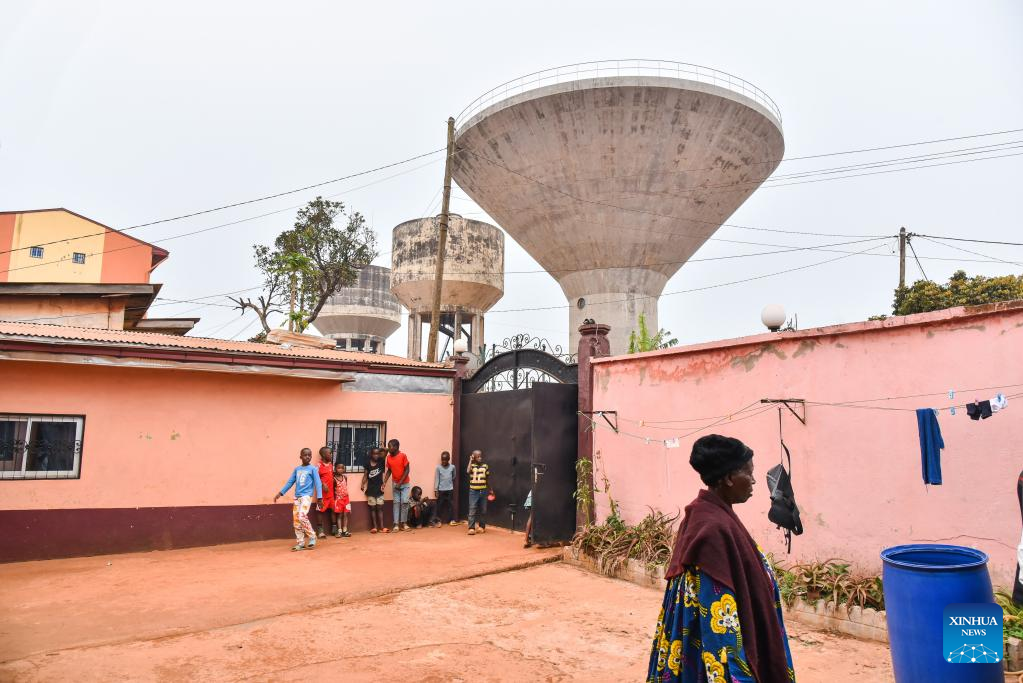
This photo taken on March 2, 2023 shows a grandmother and children in a yard next to the water tower in Bafoussam, Cameroon. (Xinhua/Kepseu)
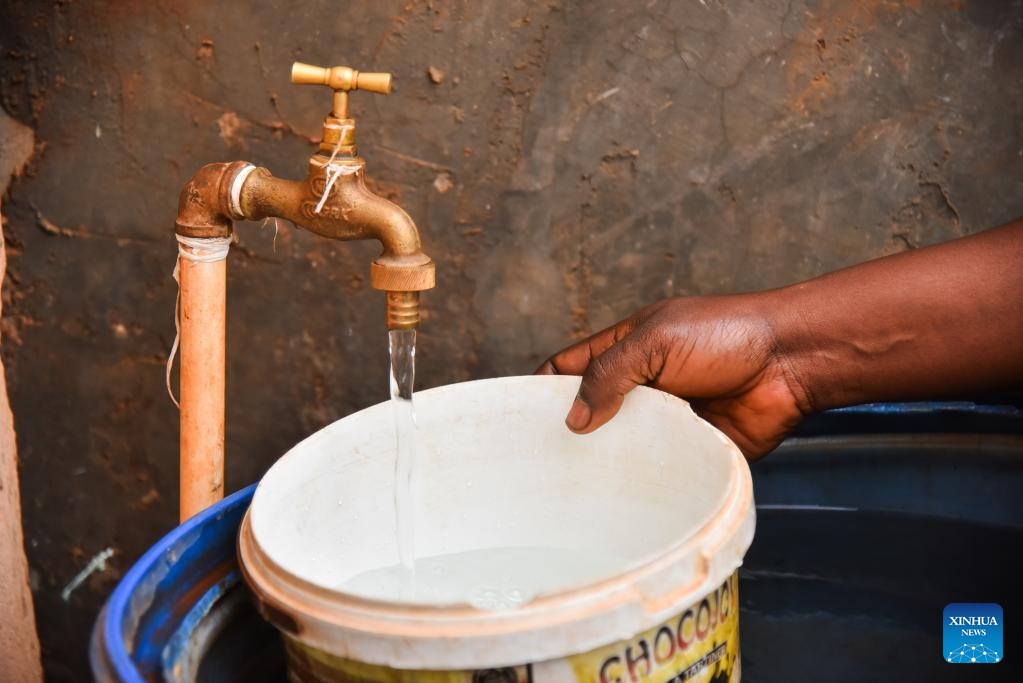
Carine Nem draws water from the tap in Bafoussam, Cameroon, March 2, 2023. (Xinhua/Kepseu)
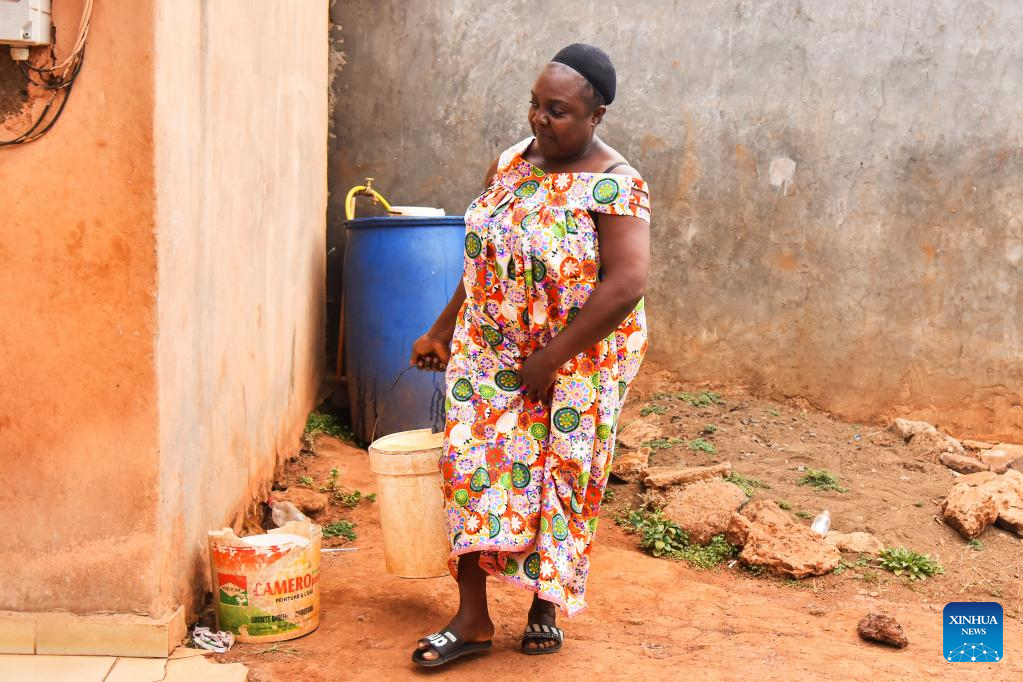
Carine Nem leaves after drawing water from the tap in Bafoussam, Cameroon, March 2, 2023. (Xinhua/Kepseu)
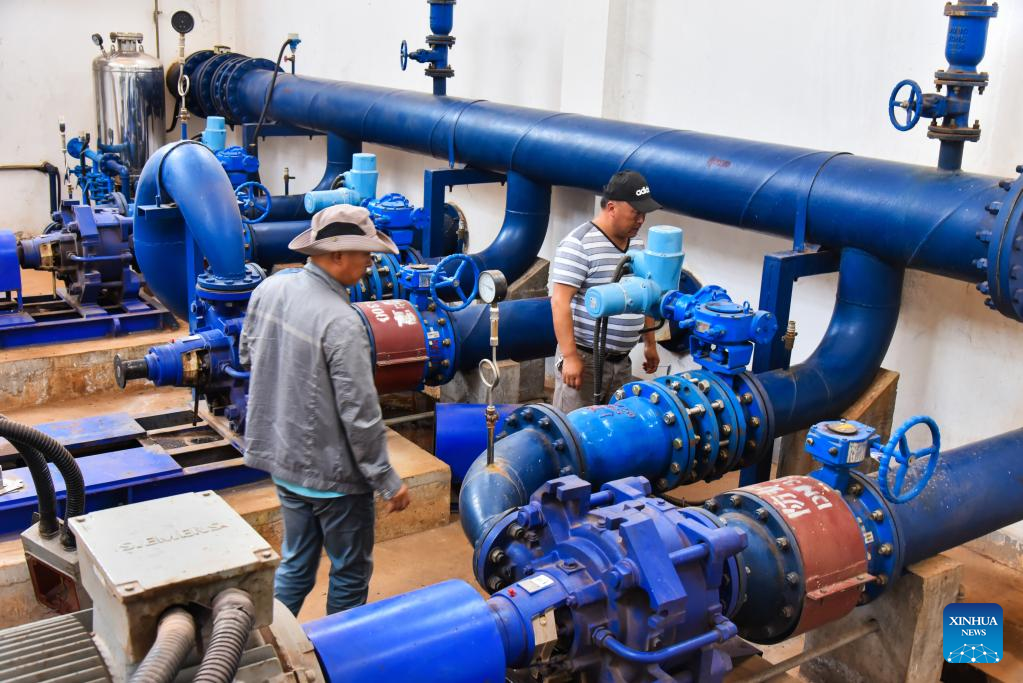
Staff members check the treated water pumping station at the water treatment plant in Bafoussam, Cameroon, March 2, 2023. (Xinhua/Kepseu)
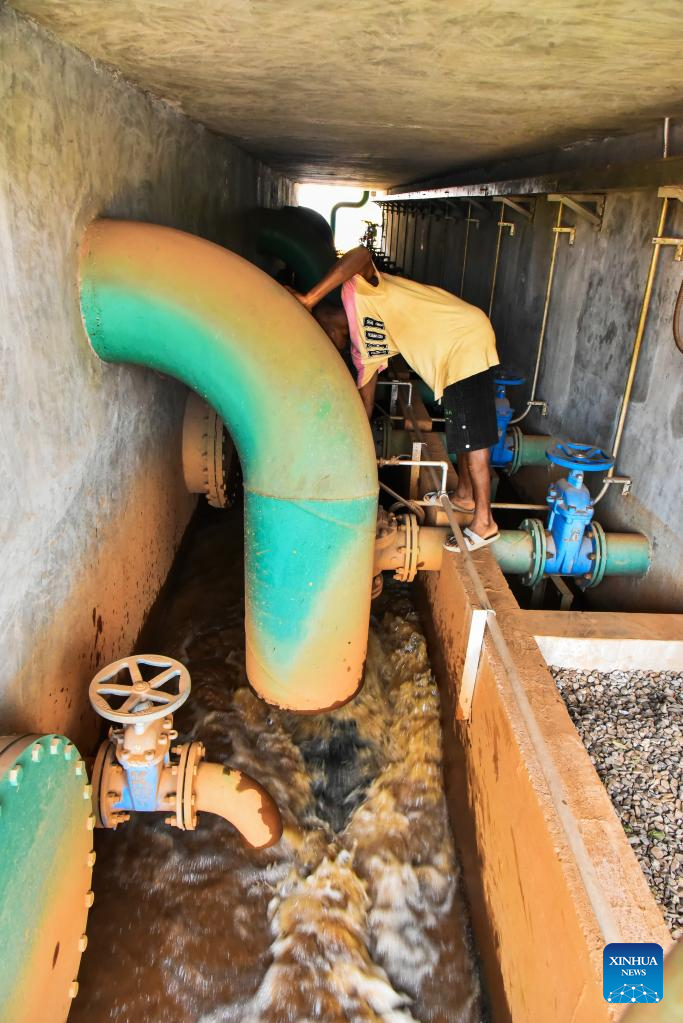
A staff member checks the water drainage pipes at the water treatment plant in Bafoussam, Cameroon, March 2, 2023. (Xinhua/Kepseu)
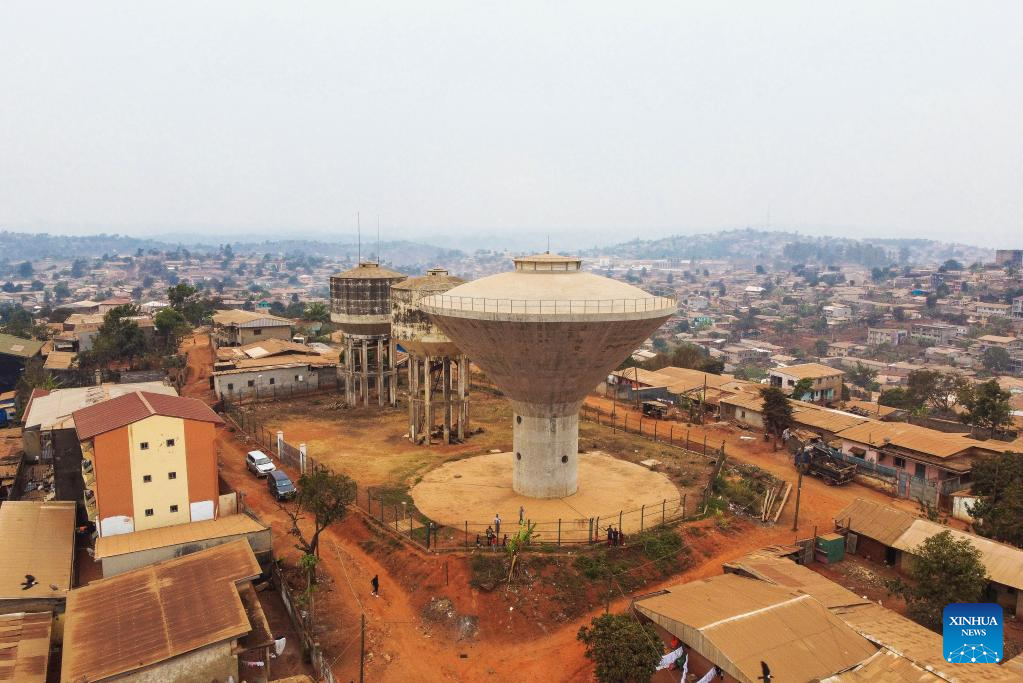
This aerial photo taken on March 2, 2023 shows a view of the water tower built by CGCOC Group in Bafoussam, Cameroon. (Xinhua/Kepseu)
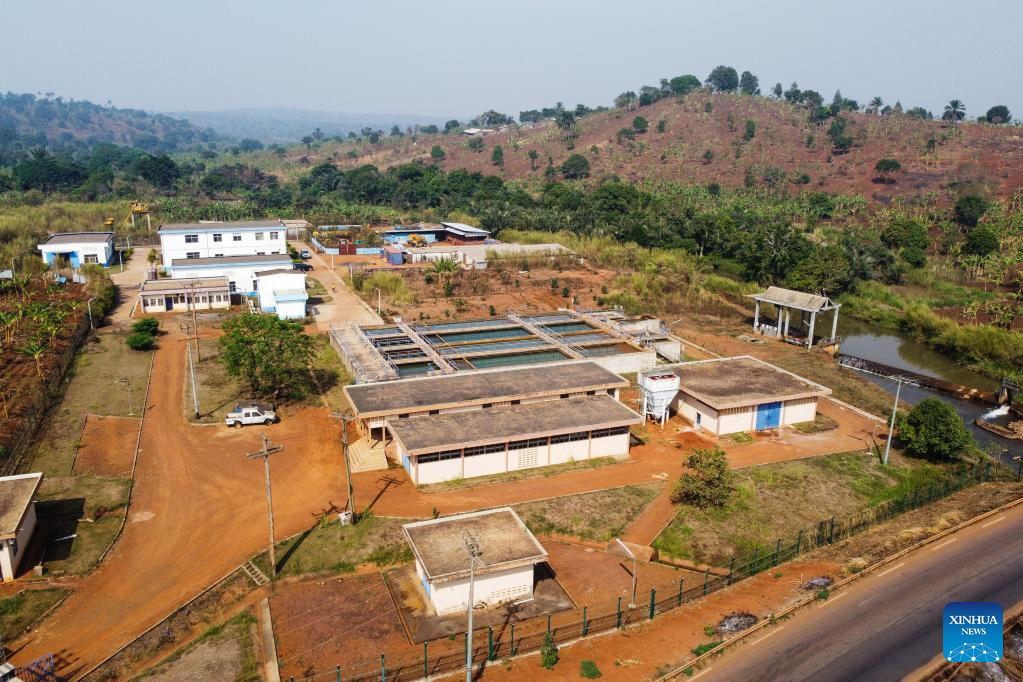
This aerial photo taken on March 2, 2023 shows a view of the water treatment plant in Bafoussam, Cameroon. (Xinhua/Kepseu)
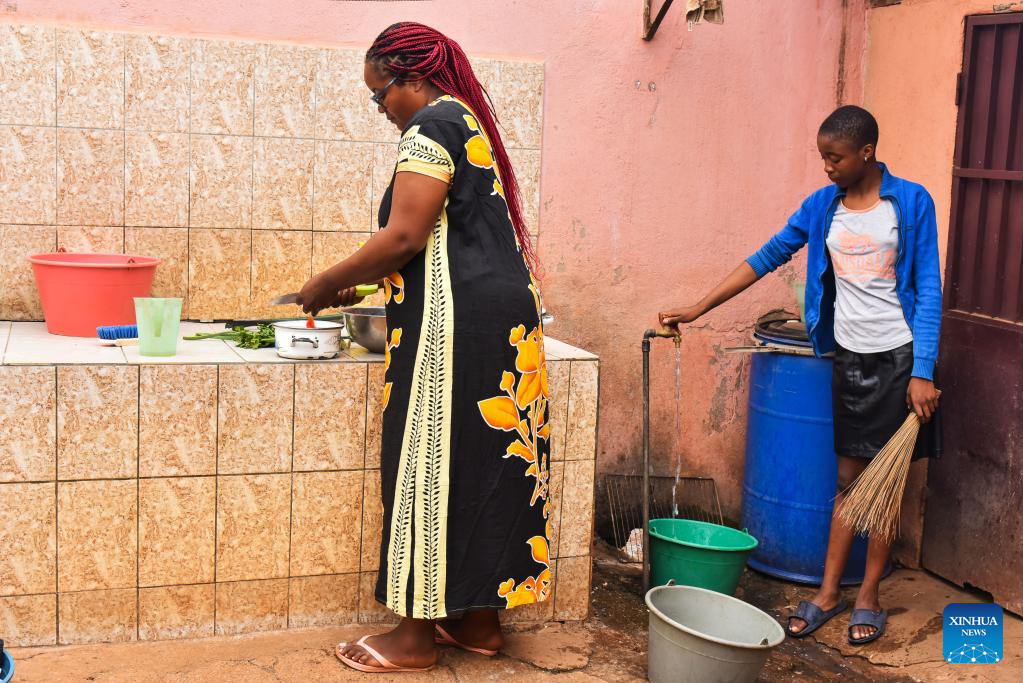
Laurence Wandji prepares meal in Bafoussam, Cameroon, March 2, 2023. (Xinhua/Kepseu)
Photos
Related Stories
- Young Cameroonians show talent in Chinese singing competition
- Feature: Chinese medical team provides free health service in Cameroon's West region
- Feature: Chinese-built port, highway in Cameroon boost economy, regional trade
- Cameroonian official expresses gratitude to Chinese medical team
- Chinese FM meets with Cameroonian FM
Copyright © 2023 People's Daily Online. All Rights Reserved.









